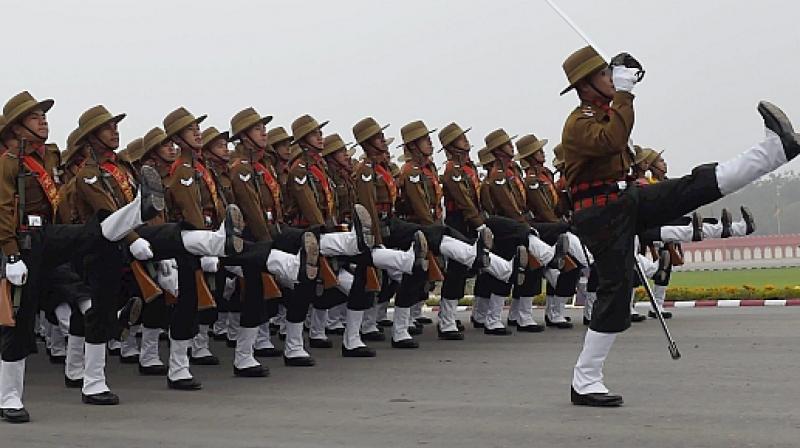At no. 4, India overtakes Saudi, Russia with USD 50 billion in military spending

London: India is among the world's top five defence spenders with its military budget at USD 50.7 billion, overtaking Saudi Arabia and Russia, according to a new report released on Monday.
The US, China and the UK remain the top three defence spenders while India has the fourth largest military budget, followed by Saudi Arabia and Russia, according to the '2016 Jane's Defence Budgets Report’, released by research firm IHS Markit.
India spent $50.7 billion in 2016 on defence, up from $46.6 billion in 2015.
The report said that India is set to overtake Britain with the third-largest defence budget by 2018 as a result of its modernization drive.
The US remained way ahead of the world with a budget of $622 billion, followed by China at $191.7 billion while the UK spent $53.8 billion on defence in 2016, Saudi Arabia $48.68 billion and Russia $48.44 billion.
After three years of budgetary constraints, the definitive UK-based defence magazine forecasts that Indian spending will rise from $38 billion in 2010 to $64 billion in 2020.
"Procurement spending has been constrained in India over the last three years as personnel costs have increased. However, what we expect to see from 2017 onwards is a military focused on modernization. India needs new equipment to fulfill its modernization drive. Over the next three years, India will re-emerge as a key growth market for defence suppliers," said Craig Caffrey, Principal Analyst for Asia-Pacific at 'IHS Janes'.
The worldwide outlook shows that global defence spending rose by 1% to $1.6 trillion in 2016, against 0.6% in 2015.
This rise has been attributed largely to strategic threats posed by Russia and the Islamic State terror group in the Middle East.
"Defence spending returned to a healthy rate of growth in 2016, kicking off what we expect to be a decade of stronger global defence spending," said Fenella McGerty, Principal Analyst at 'IHS Janes'.
By 2020, China is forecast to be spending more than the whole of western Europe on defence and by 2025, more than all the states in the Asia-Pacific region combined.

